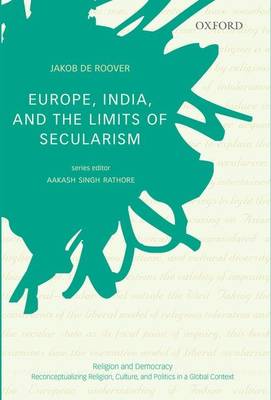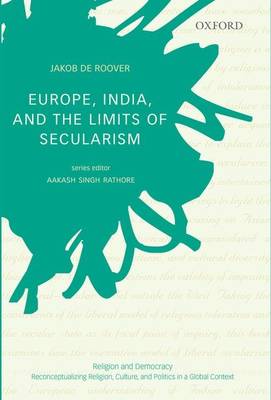
Bedankt voor het vertrouwen het afgelopen jaar! Om jou te bedanken bieden we GRATIS verzending (in België) aan op alles gedurende de hele maand januari.
- Afhalen na 1 uur in een winkel met voorraad
- In januari gratis thuislevering in België
- Ruim aanbod met 7 miljoen producten
Bedankt voor het vertrouwen het afgelopen jaar! Om jou te bedanken bieden we GRATIS verzending (in België) aan op alles gedurende de hele maand januari.
- Afhalen na 1 uur in een winkel met voorraad
- In januari gratis thuislevering in België
- Ruim aanbod met 7 miljoen producten
Zoeken
Omschrijving
For several decades now, commentators have sounded the alarm about the crisis of secularism. Saving the secular state from political religion, they suggest, is a question of survival for societies characterized by religious diversity. Yet it remains unclear what the crisis is all about. This book argues that its roots are internal to the liberal model of secularism and toleration. Rather than being neutral or non-religious, this is a secularized theological model with deep religious roots. The limits of liberal secularism go back to its emergence from the dynamics and tensions of the Protestant Reformation in Europe. From the very beginning, it went hand in hand with its own mode of intolerance: an anticlerical theology that rejected Catholicism and Judaism as evil forms of political religion. Later this framework produced the colonial descriptions of Hinduism (and its caste hierarchy) as a false and immoral religion. Thus, secularism was presented as the only route forward for India. Still, the secular state often harms local forms of living together and reinforces conflicts rather than resolving them. Todays advocacy of secularism is not the outcome of reasonable reflection on the problems of Indian society but a manifestation of colonial consciousness.
Specificaties
Betrokkenen
- Auteur(s):
- Uitgeverij:
Inhoud
- Aantal bladzijden:
- 296
- Taal:
- Engels
Eigenschappen
- Productcode (EAN):
- 9780199460977
- Verschijningsdatum:
- 3/05/2016
- Uitvoering:
- Hardcover
- Formaat:
- Genaaid
- Afmetingen:
- 147 mm x 225 mm
- Gewicht:
- 471 g

Alleen bij Standaard Boekhandel
+ 110 punten op je klantenkaart van Standaard Boekhandel
Beoordelingen
We publiceren alleen reviews die voldoen aan de voorwaarden voor reviews. Bekijk onze voorwaarden voor reviews.









